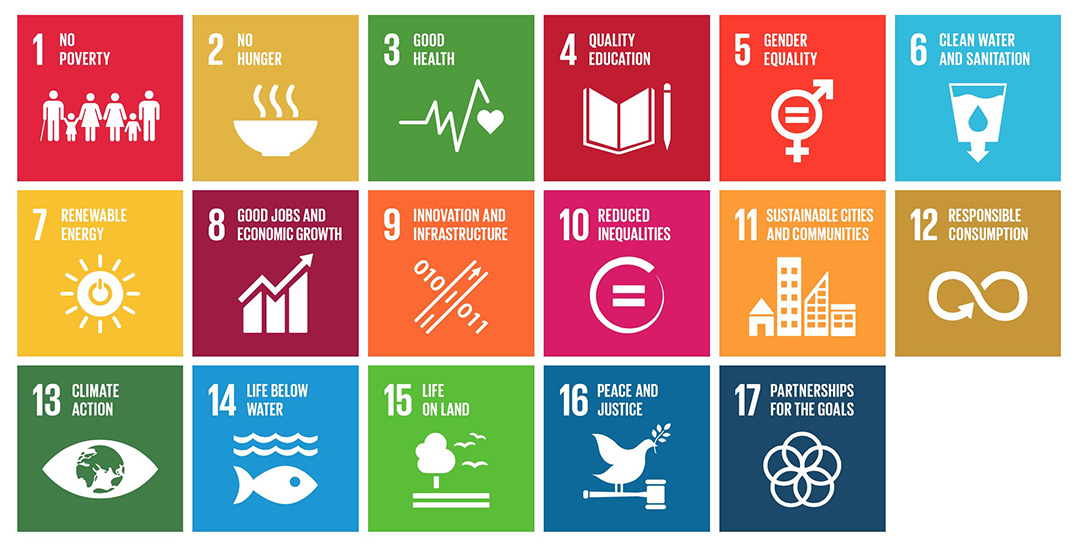
‘A small difference can change the world’
A new USask College of Nursing course is inspiring students to advocate for environmental sustainability to improve the health of people and the planet.
By Shannon BoklaschukA new course at the University of Saskatchewan (USask) is inspiring nursing students to learn more about how they can support ecological health for the benefit of people and the planet.
The innovative College of Nursing course, NURS 405.3/805.3: Environmental Sustainability in Health Care, was first offered earlier this year at USask as an introduction to planetary health and environmental sustainability practices for nurses and other health-care professionals.
The course was developed by Dr. Wanda Martin (PhD), a planetary health nurse who is passionate about creating a healthy lifestyle and growing food while supporting local, small-scale farmers who engage in ecologically sound practices. Martin saw a need for such a course at post-secondary institutions across the country and created NURS 405.3/805.3 at USask as a result.
“From a nursing perspective, I belong to the Canadian Association of Nurses for the Environment and there’s very little nursing education preparing nurses for how to nurse, or what you can expect, as the climate changes,” said Martin, an associate professor in the College of Nursing.
“What are we going to expect in terms of health changes, and what is our role as defenders of social justice? How do we advocate for a healthy environment as part of our advocacy package?”
Martin noted that during the summer of 2023, the health of people around the world was negatively impacted by environmental factors such as wildfires and heatwaves. According to the World Health Organization (WHO), climate change is directly contributing to humanitarian emergencies from heatwaves, wildfires, floods, tropical storms, and hurricanes, which are increasing in scale, frequency, and intensity. In fact, research shows that 3.6 billion people already live in areas highly susceptible to climate change.
As WHO states: “Climate change presents a fundamental threat to human health. It affects the physical environment as well as all aspects of both natural and human systems—including social and economic conditions and the functioning of health systems. It is therefore a threat multiplier, undermining and potentially reversing decades of health progress.”

Martin said nurses are often envisioned by members of society as taking on individual bedside roles in health systems and patient care. However, she said nurses are trusted health-care professionals who have important roles to play at the community level and in making vital, and large-scale, policy change.
“From a climate change mitigation and sustainability perspective, the voices of nurses can be quite powerful in that dialogue because of the health implications,” said Martin. “I want nurses to be able to do that—to step up and be that advocate.”
Brandy Pearson, a master’s degree student in her second year of studies, enrolled in Martin’s course when it was first offered in the second term of the 2022/23 academic year. As part of the course requirements, Pearson completed an action plan outlining how she can help preserve natural resources and decrease carbon emissions in her community. The assignment reminded her that “a small difference can change the world.”
“We are only borrowing this planet for the short time we are on it. It is our roles as human beings to leave things better than when we arrived, for our children and children’s children,” she said. “This includes being more conscious of the decisions and choices that we’re making and implementing short-term strategies that can have lifelong effects.”
NURS 405.3/805.3 is open to undergraduate and graduate students, including students enrolled in the College of Nursing and other academic programs at USask. The course, which will again be offered to students in Term 2, focuses on interdisciplinary learning and includes an art-project component. It also emphasizes the United Nations Sustainable Development Goals (SDGs) and inter-professional action, while integrating topics such as systems thinking, movement building, health equity, and social justice.
The 17 SDGs are at the heart of the 2030 Agenda for Sustainable Development, which was adopted by all United Nations member states in 2015 as a shared blueprint for peace and prosperity for the planet and its people. The SDGs are universal goals that are designed to meet urgent social, environmental, economic, and political challenges facing the world by the year 2030. At USask, the Critical Path to Sustainability strategy lays out an ambitious set of goals and actions that draw inspiration from the Agenda for Sustainable Development Goals.
Pearson said enrolling in Martin’s course further opened her eyes to “the significant steps that need to be taken to help preserve our environmental natural resources and decrease carbon emissions.”
“We were required to complete an action plan and show how we would go about implementing it, as well as barriers that exist. The assignment itself seemed complex, yet simple steps could be taken to assist in implementing the action plan to make small changes within your community,” she said.
Sharon Sackey, a first-year master’s student in the College of Nursing, came to USask after pursuing an undergraduate degree in nursing at Valley View University in Ghana. Sackey was pleased to have an opportunity to enrol in NURS 805.3, which provided her with valuable information on how to protect the planet, conserve resources, and create a more sustainable future.
“As a research student, the course has broadened my understanding on the interconnectedness between the environment and various research disciplines,” she said. “This knowledge has inspired me to make innovative research ideas and approaches to prioritize sustainability. Also, it has enhanced my ability to conduct environmentally conscious research, promote sustainable practices, and contribute to the global effort of addressing environmental challenges.”
Sackey said the Environmental Sustainability in Health Care course will help future nurses understand the impact of environmental factors on health, such as air and water quality, and how these factors are related to disease. She also believes the course will empower health-care professionals to advocate for healthier environments, reduce health-care waste, and improve patient outcomes overall.
“Environmental sustainability is an important field of study; it empowers us to make positive changes for a greener and healthier world,” she said.
Professor Airini, provost and vice-president academic, said USask has the bold ambition to set the standard in teaching and learning. USask nursing courses are growing world-class graduates, she said.
“Our students are the future of nursing at home in Saskatchewan, across Canada, and around the world,” said Airini. “Developing innovative and cutting-edge courses, such as Environmental Sustainability in Health Care, is an important part of preparing our learners for the challenges and opportunities they will face today and tomorrow.”
Article re-posted on .
View original article.
Together, we will undertake the research the world needs. We invite you to join by supporting critical research at USask.

